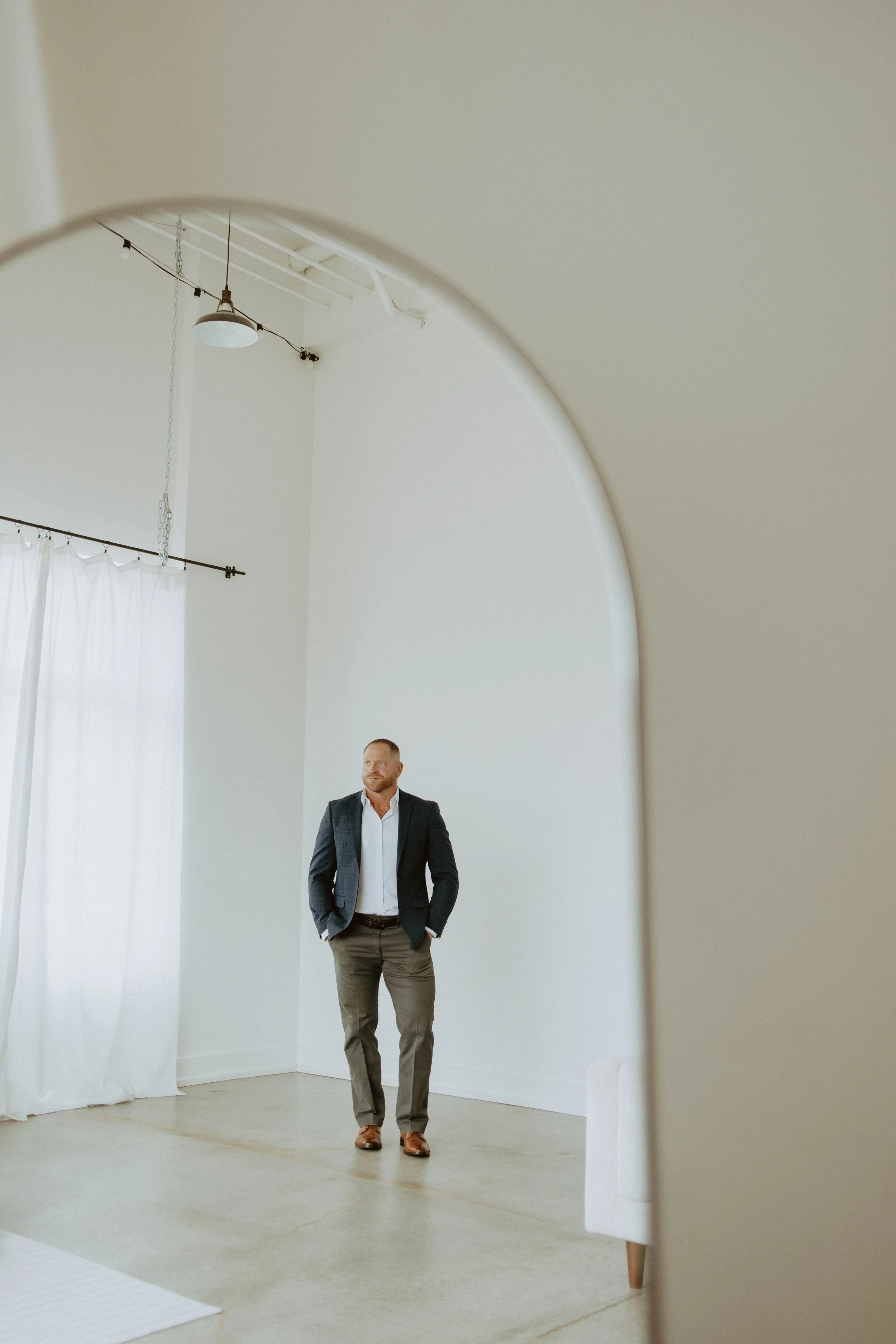If Cinderella Happened Today, What Would Happen to Her Inheritance Under Nebraska Law?
In Nebraska blended families, “good intentions” are not a legal plan. If you die without a will or trust, stepchildren may not inherit at all, while a surviving spouse can have strong statutory rights that reshape who receives what. This Cinderella-inspired guide explains how Nebraska intestacy, the elective share, and key spouse allowances can affect second marriages—and how a well-built trust-based plan can protect your kids without setting your spouse up to fail.
Are Handwritten “Napkin Wills,” Text Messages, or DIY Wills Actually Valid in Nebraska?
Many Nebraska families assume a handwritten note, text message, or video will control what happens after death. In reality, Nebraska probate law is strict about what counts as a valid will, and informal “napkin wills” often fail. This article explains when handwritten wills work, why DIY documents cause disputes, and how to protect your family from unnecessary probate fights.
What Happens If My Unmarried Partner Dies Without a Will in Nebraska?
If your unmarried partner dies without a will in Nebraska, the law does not treat you as an heir or default decision-maker. Assets typically pass to parents, siblings, or children, not to a long-term partner. This article explains how Nebraska intestacy and medical decision-making laws actually work, the risks unmarried couples face, and how the right estate planning documents can protect the person you love.
Can One Outdated Beneficiary Form Wreck an Otherwise Good Nebraska Estate Plan?
Beneficiary designations often control more of your estate than your will. In Nebraska, retirement accounts, life insurance, and certain bank or investment accounts pass by contract, which means outdated forms can undermine even careful planning. This post walks through the most common mistakes, the divorce-related legal nuances that trip people up, and how to make sure your estate plan actually works when it matters.
Why Does a “Perfect” Estate Plan Still Tear Families Apart?
Even well-drafted wills and trusts can leave families fighting. In my Lincoln practice, I see conflict arise when plans ignore real-world dynamics, undocumented gifts, and personal property. Nebraska law enforces what’s written, not what was meant—and that gap is where families fracture.
What Taylor Swift’s Airtight Estate Planning Can Teach the Rest of Us (Yes, Even in Nebraska)
Taylor Swift didn’t avoid legal chaos by luck. She avoided it through intentional estate planning. This post explains how clear documents, limited authority, and early planning can keep families out of court—and why those same lessons matter just as much for everyday Nebraskans.
Do College Athletes Need an Estate Plan? The Legal Reality of NIL in Nebraska
Do college athletes with NIL deals really need an estate plan? In Nebraska, the answer is often yes. Student-athletes can earn real income through Name, Image, and Likeness (NIL) agreements, but state-specific laws create legal gaps many families don’t expect. Nebraska’s age-19 rule, limits on how long NIL contracts can last, and strict rules around digital assets mean that default law may leave no one with authority to manage contracts, income, or medical decisions in a crisis. This article explains why estate planning has become a critical piece of NIL and how Nebraska student-athletes can protect what they’re building.
Can You Inherit if You Are Accused of Murder? The Rob Reiner Case Explained
What happens to an inheritance when an heir is accused of murder? The recent deaths of filmmaker Rob Reiner and his wife have brought national attention to a little-known area of probate law: slayer statutes and simultaneous death rules. Under Nebraska law, a person who feloniously and intentionally kills another may be treated as having predeceased the victim, losing the right to inherit through a will, trust, joint property, or beneficiary designation. When spouses die close in time, Nebraska’s 120-hour rule can also determine whether they inherit from each other at all. This article explains how these laws work, why criminal charges are not always required to disinherit an heir, and what Nebraska families should understand about protecting their estate in worst-case scenarios.
What Is Día de las Mascotas Muertas — and How Can Nebraska Pet Owners Honor Their Pets’ Legacies?
Día de las Mascotas Muertas — the “Day of the Dead for Pets” — is celebrated on October 27 to honor the lives of beloved animals who’ve passed away. Families build small altars with photos, toys, and marigolds to welcome their pets’ spirits home, creating a touching space for remembrance and healing. This tradition also highlights an important legal truth for Nebraska pet owners: you can include your pets in your estate plan through a will or pet trust, ensuring their care continues no matter what. Learn how this beautiful day of remembrance connects culture, love, and practical planning for your four-legged family members.
What Happens If You Don’t Leave Estate Planning Instructions? (And Why a Ouija Board Won’t Help)
When someone dies without a will in Nebraska, the law—not their loved ones—decides who inherits. That can mean long probate delays, frozen bank accounts, and family conflict that lasts years. This post explains how Nebraska’s intestacy laws work, what documents belong in a complete estate plan, and why a will, powers of attorney, and healthcare directives matter far more than most people realize. Learn how a Nebraska estate planning attorney can help you protect your family and avoid leaving your legacy to chance—or a Ouija board.
Estate Planning Myths in Nebraska: What Taylor Swift’s “Wood” Teaches Us About Real Legal Protections
Taylor Swift’s “Wood” may play with luck and superstition, but when it comes to protecting your future, estate planning isn’t about knocking on wood—it’s about having the right legal documents in place. In Nebraska, myths like “I’m too young for a will” or “the state gets everything if I don’t have one” can leave families unprotected. This post breaks down the most common estate planning myths and explains the real tools—like wills, powers of attorney, and transfer-on-death deeds—that safeguard your wishes at every stage of life.
Where Should You Keep Your Important Estate Planning Documents in Nebraska?
Most families have wills, powers of attorney, or trust documents—but when asked where they’re kept, the answer is often “around somewhere.” In Nebraska, if your loved ones can’t locate the originals quickly, those documents may be treated as revoked, leaving your family unprotected. This article explains the risks, highlights Nebraska law on lost wills and safe deposit boxes, and gives you an actionable checklist to ensure your estate plan is accessible in an emergency.
Is Estate Planning Just About Documents—Or About Ongoing Guidance?
Estate planning is more than filling out forms—it’s about protecting your family when life takes unexpected turns. In Nebraska, the difference between “just documents” and ongoing legal guidance can mean peace of mind in a crisis. Learn why working with an experienced estate planning attorney offers clarity, stability, and protection that online templates simply can’t provide.
The Problem with Legal Defaults: Why Tradition Isn’t Always Fair
Why are women’s bathroom lines longer? Not because of “going in pairs,” but because equal square footage doesn’t mean equal outcomes. The same is true in Nebraska law. Parenting plans, intestacy rules, and immigration procedures may look fair on paper, but in practice they often disadvantage families. In this post, we explore how legal defaults fail Nebraska families—and how the right planning and advocacy can make outcomes truly fair.
Does My Will Still Work If I Move to Nebraska?
If you created your will in another state and recently moved to Nebraska, it’s likely still valid—but that doesn’t mean it will work the way you expect. Nebraska has its own requirements for witnesses, handwritten wills, executors, and spousal inheritance rights, and those differences can create delays, extra costs, or even override your wishes. Moving is also the right time to revisit powers of attorney, healthcare directives, and beneficiary designations to make sure your entire estate plan functions as intended under Nebraska law.
Why Did Brooke Hogan Ask to Be Removed from Hulk Hogan’s Will?
When Brooke Hogan asked to be removed from her father Hulk Hogan’s will, it raised a surprising but important estate planning question: why would someone opt out of an inheritance? This blog unpacks the legal and emotional reasons behind that kind of request—whether you’re trying to avoid probate disputes, set financial boundaries, or legally disclaim an inheritance under Nebraska law.
“My Kids Will Figure It Out” — Why That’s Not a Plan
Even responsible adult children need more than trust—they need a plan. This post breaks down why ‘They’ll figure it out’ isn’t enough when it comes to estate planning, and how a clear, legally sound strategy can protect your family and preserve peace.
Beyoncé Has an Empire—You Still Need a Will (Nebraska edition)
You may not have Beyoncé’s empire, but if you own a home, have kids, or want to protect your chosen family, you need an estate plan in Nebraska. Without a will, the state decides who inherits. Here’s how to run your world—with clarity and control.
What Tony Bennett’s Story Teaches Us About Planning for Dementia
Tony Bennett’s family showed how important it is to plan for dementia early. In this post, I explain key steps for Nebraska families: Durable Powers of Attorney, Advance Directives, Living Wills, and why planning before capacity is lost protects your loved one’s dignity and wishes.
When Someone Tries to Honor a Deceased Person’s Wishes—But It Wasn’t in Writing, Nobody Is Happy
When a loved one’s wishes aren’t written in a valid Nebraska will or trust, it often leads to family conflict, delays, and costly mistakes in probate. In this post, I explain what happens when property isn’t clearly addressed in your Nebraska estate plan—and why written planning is the best way to protect your family.
Want to stay in the loop without checking back every week?
You can subscribe to updates from my blog using RSS. It’s an easy way to get new posts in your favorite app—no social media or email required.
Here’s the link to subscribe:
https://www.zandersonlaw.com/blog?format=rss
You can paste that into a feed reader like Feedly, Inoreader, or even some email clients.
Not sure what RSS is?
It’s kind of like subscribing to a news feed—just for this blog.
You’ll automatically see new articles when they’re posted, without needing to follow or sign up for anything else.
Please note:
The content on this blog is for general informational purposes only and is not legal advice.
Reading it does not create an attorney-client relationship.
For personalized guidance tailored to your specific circumstances,
it's always best to connect with a qualified attorney.




















